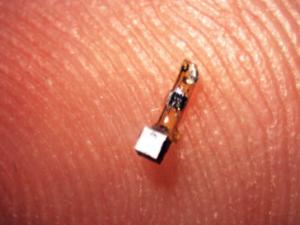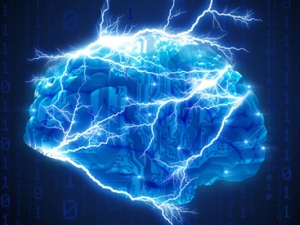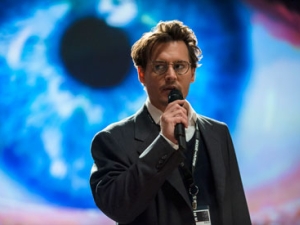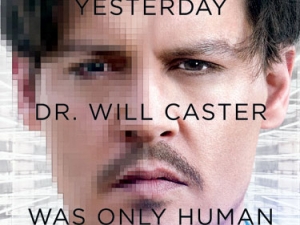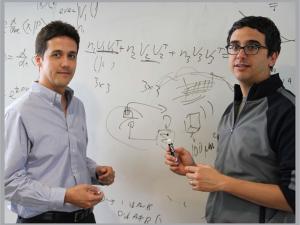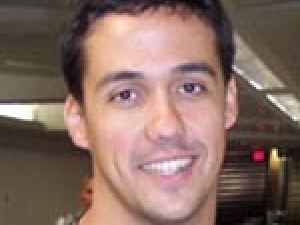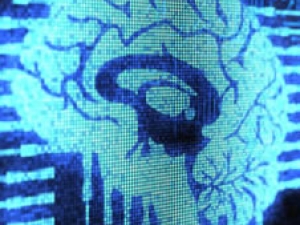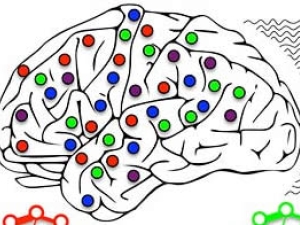

Research Bio
Jose M. Carmena is the Chancellor's Professor of Electrical Engineering and Neuroscience, and Co-Director of the Center for Neural Engineering and Prostheses at UC Berkeley and UCSF. His research program in neural engineering and systems neuroscience is aimed at understanding the neural basis of sensorimotor learning and control, and at building the science and engineering base that will allow the creation of reliable neuroprosthetic systems for the severely disabled.
Dr. Carmena received the B.S. and M.S. degrees in electrical engineering from the Polytechnic University of Valencia (Spain) in 1995 and the University of Valencia (Spain) in 1997. Following those he received the M.S. degree in artificial intelligence and the Ph.D. degree in robotics both from the University of Edinburgh (Scotland, UK) in 1998 and 2002 respectively. From 2002 to 2005 he was a Postdoctoral Fellow at the Department of Neurobiology and the Center for Neuroengineering at Duke University (Durham, NC).
He is Fellow of the IEEE and member of the Society for Neuroscience, and the Neural Control of Movement Society. Dr. Carmena has been the recipient of the McKnight Technological Innovations in Neuroscience Award (2017), Bakar Fellowship (2012), the IEEE Engineering in Medicine and Biology Society Early Career Achievement Award (2011), the Aspen Brain Forum Prize in Neurotechnology (2010), the National Science Foundation CAREER Award (2010), the Alfred P. Sloan Research Fellowship (2009), the Okawa Foundation Research Grant Award (2007), the UC Berkeley Hellman Faculty Award (2007), and the Christopher Reeve Paralysis Foundation Postdoctoral Fellowship (2003).
Research Expertise and Interest
brain-machine interfaces, neural ensemble computation, neuroprosthetics, sensorimotor learning and control
In the News
Four projects garner $1.7 million from federal BRAIN initiative
Sprinkling of neural dust opens door to electroceuticals
UC Berkeley engineers have built the first dust-sized, wireless sensors that can be implanted in the body, bringing closer the day when a Fitbit-like device could monitor internal nerves, muscles or organs in real time.
CNEP researchers target brain circuitry to treat intractable mental disorders
Neuroscientists, engineers and physicians are teaming up for an ambitious five-year, $26 million project to develop new techniques for tackling mental illness.
Neuroengineers bring science cred, Berkeley feel to ‘Transcendence’ film
When Hollywood knocked on the doors of UC Berkeley engineering professors Michel Maharbiz and Jose Carmena, the researchers answered. Director Wally Pfister tapped their expertise in neural engineering and brain-machine interfaces during the filming of his movie, “Transcendence,” which opens in theaters April 18.
Director Wally Pfister joins UC Berkeley neuroengineers to discuss the science behind ‘Transcendence’
“Transcendence” director Wally Pfister, Oscar®-winning cinematographer (“Inception”), will come to UC Berkeley, for a screening of exclusive film clips and audience Q&A.
Mind Over Matter
It still sounds futuristic, but the time is approaching when people paralyzed by stroke or spinal cord injury will be able to regain the experience of movement. Neuroengineer Jose Carmena and bioengineer Michel Maharbiz have joined forces in a project supported by the Bakar Fellows Program to move this technology from the laboratory to the real world.
Bakar Fellows advance commercially promising research
In its first year, the initiative will give research innovations by six early-career UC Berkeley faculty members — including technologies to move prosthetic limbs with the power of thought and to control Argentine ants using their own pheromones — a significant boost from the lab to the market.
UC Berkeley, UCSF join forces to advance frontier of brain repair
Researchers at UC Berkeley and UCSF have launched the joint Center for Neural Engineering and Prostheses to develop technology that can translate brain signals into movements controlling prosthetic limbs, circumventing damaged or missing neural circuits in people suffering from disabling conditions.
For neurons to work as a team, it helps to have a beat
When it comes to conducting complex tasks, it turns out that the brain needs rhythm, according to UC Berkeley researchers. Neuroscientists have found that cortical rhythms, or oscillations, can effectively rally groups of neurons in widely dispersed regions of the brain to engage in coordinated activity, much like a conductor will summon up various sections of an orchestra in a symphony.


